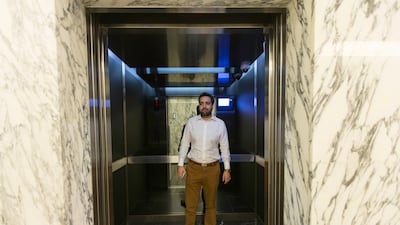Interest in gold from Islamic countries has soared since the Shariah standard for gold was introduced almost a year ago, opening the way for Muslim investors to put money into bullion and coins.
Last December the standard was approved as a collaboration between the globally recognised Islamic standard setting body - the Bahrain based Accounting and Auditing Organisation for Islamic Financial Institutions (Aaoifi) and The World Gold Council (WGC) in London. So what has happened since then?
"We have seen much more interest in gold from Islamic countries since the standard was launched in December 2016," says Natalie Dempster, managing director, central banks and public policy at the WGC. "We have had a lot of engagement with the advisory community, fund managers and product providers."
Although it may be surprising to many, Islamic law places special restrictions on gold investing.
Gold is a ribawi item, which puts in a special category of six items regarded as so important to daily life that they cannot be hoarded (the others being silver, dates, wheat, salt and barley).
To be Shariah compliant, ribawi items must be sold on weight and measure, and cannot be traded for future value or for speculation. This kept these items in circulation so that ordinary folk could go about daily life without undue hardship caused by artificial shortages.
This placed Islamic investment institutions such as banks and funds in a difficult position, putting gold-backed exchange traded funds (ETFs), bullion bars and even mining shares off limits.
The Shariah standard was introduced to change this.
Ms Dempster says a number of existing gold products have now been certified as Shariah compliant and are being marketed as such. Several new regionally issued products are also under development.
"The Dubai Gold and Commodities Exchange and Ayedh Dejem Group have already said that they intend to develop and launch a new Shariah-compliant gold spot contract," she adds.
These will provide easy access to Shariah compliant gold for retail and institutional investors, Ms Dempster says. “We expect to see a number of these new products being launched next year, which should prove a harbinger for a pickup in demand from the second half of next year."
_____
Read more:
A golden crypto currency you can invest in for as little as $45
Gold set to surge on Sharia standard
Sharia-compliant gold standard to attract massive Islamic investments
_____
According to research by Goldcore, international bullion brokers who supply precious metal bullion delivery and storage in the US, the potential market for Islamic investment is vast.
If just one per cent of Islamic finance goes into gold, demand could increase up to a massive 1,000 tons a year, Goldcore says. In 2016 gold production set its third successive record ever, with around 3,222 tonnes, or 103 million ounces being produced.
This figure by the Thomson Reuters GFMS Gold Survey 2017, also predicts that production levels are set for long-term decline.
“The rise, however, was modest and in our view these record breaking habits are close to an end,” the survey said. “The growth rate (of production) has roughly halved every year for the last three years, partly as output from new mines has slowed and we expect production to contract in 2017.”
Adopting a Shariah standard has implications not just for the Muslim world but the UAE itself. Dubai in particular is rising through the ranks as a purchase and investment destination as it accounts for 20 per cent of world sales of precious metals, according to the WGC.
This has led to the emergence of institutions such as Noor Bank, Regal Assets and others that will buy and store bullion on behalf of clients from around the world.
The adoption of a Shariah standard was less of an issue for individual investors than it was for institutions that offer gold-based instruments, says Ibrahim Mohammed, chief executive of GoldGuard, a Dubai-based bullion investor.
"I don't think many ordinary Muslims were aware that there was a need for a Shariah standard," Mr Mohammed said. "They've always used gold as a hedge against the future. But what it has done is encourage institutions to set up gold investments and bring them to the marketplace. From an industry perspective it's been good."
Earlier this year GoldGuard together with OneGram, a Dubai based blockchain issued the first Sharia-compliant gold-backed cryptocurrency. Bullion is stored in a vault inside Dubai Airport Free Zone.
Mr Mohammed says interest has come not just from the Muslim world, but also Europe.
"We are surprised at the level of interest from investors from Europe, especially the UK, where people are wanting to guard against a pound devaluation. So far we have had more sales from Europe than from Asia."
What this points to is that Shariah instruments are appealing to a wide audience. And, perhaps even more significantly, it shows that Dubai is growing as a centre of trust for investors looking for safety in an uncertain world.
"Dubai is being viewed as a stable place in a world where anything can happen. It is really encouraging that investors are coming here to protect their assets."
And as awareness of Shariah-compliant gold investment grows, Dubai's share of the market is likely to grow.
"Investors are becoming aware that there are more options available to them, and that Shariah instruments are worth considering," Mr Mohammed says.

